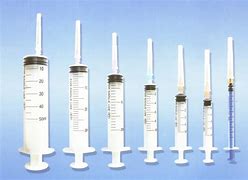What really is the outlook of the medical fiber optics market?
Medical fiber optics are an important medical technology
that is employed in a variety of medical fields. Fiber optic technology is
widely used because of its structure and function, which makes medical
operations and diagnosis easier for both physicians and patients. Medical fiber
optics are non-toxic, chemically inert, sterile, and flexible. Fiber optic
technology is widely used because of its structure and function, which makes
medical operations and diagnosis easier for both physicians and patients.
Medical fiber optics are non-toxic, chemically inert, sterile, and flexible.
Many networking systems use medical fiber optics as a
backbone, which means it has infiltrated many previously wire-only sectors.
Medical device makers are recognizing fiber optics' superior capabilities in
delivering a wide range of communications signals, and it is being integrated
into sensors, imaging, and minimally invasive surgical systems’
Approaching tactile robotics via modelling what happens in
human skin is described in a 2020 assessment of strategies for replicating
touch through robots. According to the poll, the most difficult aspect of
mimicking human touch is that humans experience touch stimuli in phases. Using
medical fiber optics to enable a robot to process texture, force, and location
in the same way as the human brain does.
Expanding of Medical Fiber Optics Market
By 2024, the medical
fiber optics market is estimated to be worth more than $1 billion. Despite
modest differences in forecasts, market reports concur that the 2020s will be a
period of significant growth for the industry. According to a recent global
market research analysis, the medical fiber optics business would develop at a
rate of 8 to 9% per year between now and 2026. According to the paper, this
dramatic rise is due to greater awareness of minimally invasive surgery, which
has pushed the use of medical fiber optics-based technology. The use of medical
fiber optics in many health care specializations, according to another
analysis, is a primary driver of growing demand. Medical technology, dentistry,
prosthetics, neurology, and oncology are among such industries.




Comments
Post a Comment